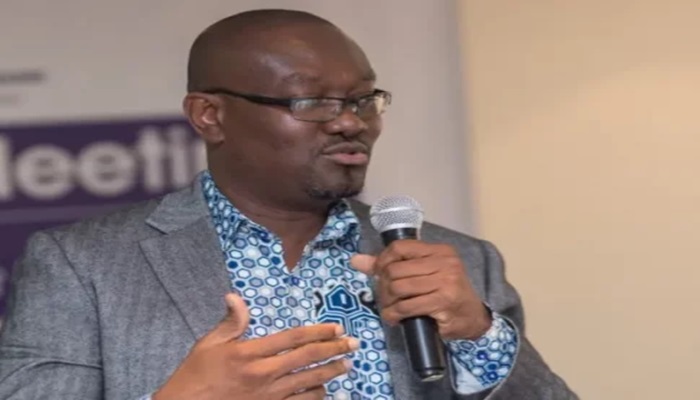Former Deputy Managing Director of the National Investment Bank (NIB), Alfred Thompson, has said that even though Ghana was also hit by global economic challenges, the government was able to manage the situation well.
The prudent management of the economic crisis prevented food rationing from taking place in Ghana as happened in some countries, he said.
Commenting on the 2024 budget presentation while speaking on the Key Point show on TV3 on Saturday, November 18, the member of the communications team of the governing New Patriotic Party (NPP) said “Even though we are in a serious situation we were able to manage the situation.”
He added “In 2024 the Ghanaian youth will come to tell you that this budget is made for them.”
Mr. Thompson made this statement in relation the Finance Minister’s statement that “we believe it has been seven years of grace and positive impact. We are determined to do more to boost the capacity of the private sector to expand productivity and create jobs.”
He noted that the “stability of the cedi largely reflects the positive impact of the restoration of economic activity.”
“The Cedi has stabilized against the dollar since early 2023 with a year-to-date, cumulative depreciation of 25.7 percent compared to 54.1 percent over the same period in 2022.
“Specifically, the cedi has only depreciated by 6.4 percent on cumulative basis since February 2023 compared to 53.9 percent over the same period in 2022. The stability of the Cedi largely reflects the positive impact from the restoration of economic activity.”
The Minister of Finance also told Parliament that Ghana’s economy under theAkufo-Addo administration is valued at over One Trillion Cedis.
This, he said, is against the GHc219.5billion that was inherited from the Mahama administration in 2016.
Presenting the 2024 budget statement on the floor of the House on Wednesday, November 15, the Finance Minister said “The 2024 budget is even more significant because we cross the one trillion Gross Domestic Product (GDP) mark for the first time in our economic history.
“Let me repeat, Ghana’s economy, under President Akufo-Addo, in 2024 final year in office is projected to be valued at over One Trillion Cedis in 2025 from the GHS219.5 billion we inherited in 2016.”
Mr Ofori-Atta further said that the government is now focused on maintaining the growth that the economy is witnessing currently.
He said the government is determined to ensure the stability of the local currency and disinflation over the medium term.
“Our task now is to maintain stability and keep on growing. we are determined to remain on a course of increased growth, currency stability and disinflation over the medium term.
“I am confident that this victory budget will ensure that we boldly walk on a sustainable path toward creating decent jobs and wealth for our people,” the finance minister said during the 2024 budget statement presentation on Wednesday, November 15.
He said the government had turned the corner relative to the economic challenges when it successfully completed the first review of the 3-year 3 billion International Monetary Fund External Credit Facility (IMF-ECF) programme.
“We turned the corner when we completed the IMF first review,” he told Parliament while presenting the 2024 budget statement on Wednesday, November 15.
He further assured that the government is poised to “maintain stability and keep growing. and ensure increased growth, currency stability.”
“We turned the corner when inflation started declining from 54 1 in December to 35.2 in October 2023,” he added.
“The recovery is indeed real and is here to stay,” he further assured.
In the past 7 years, we have: Invested GH¢32.7 billion to keep the lights on and support the growth of businesses and invested GH¢25.3 billion to facilitate the repositioning of the financial sector and enhance its ability to assist business operations.
“To date, the Development Bank Ghana has facilitated GH¢1 billion in competitive financing for the private sector, and GIRSAL continues to mitigate risks in the agriculture sector; Supported 100,000 young graduates to secure workplace experience and employment by investing GH¢2.4 billion in NABCO; Invested GH¢7.1 billion to build road and transport infrastructure to improve connectivity and productivity; Invested GH¢541.5 million in 169 1D1F enterprises to scale-up value-addition and provided 140,000 additional jobs; and vi. Created over 2.3 million jobs in the private and public sectors (approximately 900,000 in the private sector and 1.4 million in the public sector).”
Source: 3news.com

